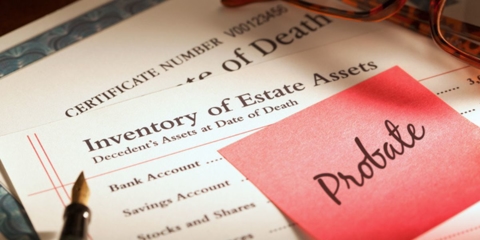Every adult should create an estate plan sooner rather than later. This is because we never know what will happen to us, and we want to ensure our loved ones are cared for in the event of our incapacity or death.
Get informed on what to do (and not do) during the estate planning process below.
What Does an Estate Plan Do?
Estate planning is the process of designating who will receive your assets and handle your estate upon your incapacity or death. Executing an estate plan is vital to ensuring your wishes are carried out as you wanted. Without an estate plan, the state in which you live will allocate your assets according to intestate succession laws.
Additionally, a well-executed estate plan can ensure your beneficiaries receive your assets with minimal estate, gift, and income taxes.
Contrary to popular belief, creating an estate plan is not something only older people should do. Young people are not immune from incapacity or death, so it’s smart for individuals of any age to create an estate plan so their assets are distributed accordingly.
A well-executed estate plan may include the following elements:
- A last will and testament
- A trust to protect assets during your lifetime and from loss by irresponsible beneficiaries upon your death
- Advanced directives for healthcare decisions upon your incapacity
- A power of attorney to give someone authority to make decisions for you upon your incapacity
Drafting a well-executed estate plan can be a complicated process. As such, there are certain things you will want to be sure to do, and other things you will want to avoid.
3 Things to Do When Estate Planning
Since estate planning involves designating assets to loved ones, the process can be stressful, both mentally and emotionally. These suggestions may make the process easier:
#1. Take Inventory
One of the best first steps to take when estate planning is to make note of all your assets. Even if you’re going to work with an estate planning attorney, this first step can make the process more seamless. The tangible assets you may want to take inventory of include:
- Homes, land, or other real estate
- Vehicles
- Collectibles and valuables
The intangible assets you may want to take inventory of include:
- Checking and savings accounts
- Stocks, bonds, and mutual funds
- Life insurance policies
- Retirement plans
- Business ownerships
#2. Remember Your Loved Ones’ Special Needs
There are certain things you may know about your situation that your estate planning attorney would not. For example, if you have a loved one with special needs who will require specialized care after your incapacity or death, it’s smart to make note of the care they are currently receiving and the care they may need in the future.
Elements you may want to make note of in regard to a loved one’s specialized care include:
- Your life insurance policy amount
- Who you want to name as your loved one’s guardian
- Your wishes for your loved one’s medical care
#3. Be Flexible
It’s important to remember that an estate plan could change in the future based on your evolving needs. This is another reason why it’s smart to begin the estate planning process at a young age so you have more time to react to changes in life circumstances and adjust your estate plan. Although it may seem burdensome to edit an estate plan down the line, it’s much better than the alternative of not having an estate plan at all.
3 Things to Avoid When Estate Planning
Just as there are things to be sure to do during the estate planning process, there are also things to avoid, including:
#1. Name Only One Beneficiary
It’s never smart to put all our eggs in one basket. This is true in regard to an estate plan as well. You should always designate more than one beneficiary in case a beneficiary passes away before you do. In this situation, the “contingent beneficiary” would be next in line for inheriting your assets. Ideally, you should name more than one contingency beneficiary.
#2. Forget Digital Assets
We live in a digital age. As such, there are many intangible assets that exist in the digital world that we must include in an estate plan. These assets could include social media accounts, online bank accounts, email accounts, and more. Think about who you will want to designate as a “digital executor” to handle these accounts when you are no longer able to.
#3. Get Too Specific
While, most of the time, it’s smart to be specific in an estate plan, there are some situations where you do not want to be too constricting. For instance, some of your assets may change in the future. You don’t want to list or name them too specifically which could void them in the future if they change in any way. The only assets for which you should get very specific are those you are guaranteed to have in the future.
Want to Create an Estate Plan? We’re Here to Help
If you are considering beginning the estate planning process or need help adjusting an existing estate plan, our Utah estate planning attorneys are here to help. We are well-versed in this state’s unique estate planning laws and we can help protect your loved ones’ futures.
Call Pearson Butler at (800) 265-2314 to schedule a consultation.


[1].jpg)

[1].jpg)
